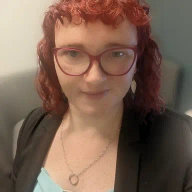Thérapeutes en TDAH en Nanaimo, British Columbia







À propos du TDAH Quel est le traitement le plus efficace pour le TDAH? La thérapie comportementale et la thérapie cognitivo-comportementale (TCC) sont couramment utilisées pour traiter le trouble du déficit de l'attention/hyperactivité (TDAH). La thérapie comportementale aide les individus à développer des stratégies pour améliorer la concentration, l'organisation et le contrôle des impulsions, tandis que la TCC se concentre sur le changement des schémas de pensée négatifs qui peuvent entraver le succès. Des médicaments, tels que des stimulants ou des non-stimulants, sont souvent utilisés en combinaison avec la thérapie pour aider à gérer les symptômes, en particulier chez les enfants et les adolescents.
Que se passe-t-il en thérapie pour le TDAH? En thérapie pour le TDAH, les clients travaillent à améliorer leurs compétences en gestion du temps, en organisation et en autocontrôle. La thérapie comportementale peut inclure la création de routines, la fixation d'objectifs et l'utilisation de systèmes de récompenses pour renforcer les comportements positifs. La TCC aide les individus à reformuler leur pensée négative, à réduire la procrastination et à gérer la frustration. Les thérapeutes peuvent également travailler avec les clients pour améliorer leurs compétences sociales et réduire les comportements impulsifs.
Quels problèmes le traitement du TDAH aborde-t-il? La thérapie pour le TDAH aide les individus à gérer des symptômes tels que l'inattention, l'hyperactivité, l'impulsivité et la difficulté à rester concentré sur une tâche. Le traitement se concentre sur l'amélioration de l'attention, la réduction de la distractibilité et l'augmentation de l'autorégulation. La thérapie pour le TDAH cible également les problèmes connexes tels que la faible estime de soi, les difficultés scolaires, les difficultés relationnelles et la dysrégulation émotionnelle.
Quel est l'objectif de la thérapie pour le TDAH? L'objectif de la thérapie pour le TDAH est d'aider les individus à gérer leurs symptômes, à améliorer leur fonctionnement dans la vie quotidienne et à réduire l'impact négatif du TDAH sur le travail, l'école et les relations. La thérapie vise à améliorer l'autocontrôle, les compétences organisationnelles et la régulation émotionnelle, permettant aux personnes atteintes de TDAH de mener une vie plus épanouissante et réussie.
About Therapy
How do I know if I need therapy?
Therapy can help if you're experiencing persistent stress, anxiety, depression, relationship issues, or difficulty coping with life changes. Many people seek support from a therapist for personal growth, emotional support, or to manage mental health conditions. If you're unsure, speaking with a licensed professional can help determine if therapy is right for you.
How much does therapy cost in Canada?
The cost of therapy varies depending on the provider, location, and specialisation. Private therapy typically ranges from $120 to $250 per session. Some psychologists and counsellors offer sliding-scale fees based on income. In certain provinces, therapy may be covered by provincial health insurance if provided by a social worker or another regulated professional in a publicly funded setting. Employee benefits and private insurance may also cover therapy costs.
Is therapy covered by insurance?
Provincial health insurance (e.g., OHIP in Ontario, MSP in British Columbia) generally covers therapy only when provided in hospitals, community clinics, or by medical professionals like psychologists and social workers. Private health insurance plans often cover therapy provided by registered counsellors or psychotherapists. Coverage details vary, so it’s best to check with your provider. Some workplaces also offer Employee Assistance Programs (EAPs) that provide short-term counselling.
Can I do online therapy in Canada?
Yes, many professionals offer online therapy through video calls, phone sessions, or secure messaging. This option is useful for those in remote areas, with busy schedules, or who prefer the comfort of home. However, provincial regulations require therapists to be licensed in the province where the client resides, so it’s important to confirm that your provider is authorised to work in your location.
How do I know if therapy is working?
Signs that therapy is effective include:
- Feeling more aware of your thoughts, emotions, and behaviours.
- Improved coping skills and emotional regulation.
- Positive changes in relationships and daily life.
- Feeling more hopeful or experiencing relief from symptoms.
Progress can be gradual, and setbacks are normal. If you're unsure, discussing your experience with your therapist can help adjust your treatment plan as needed.
How long does therapy take?
The length of therapy depends on your goals, the type of treatment, and the severity of your concerns. Some people benefit from short-term therapy (6–12 sessions), while others engage in long-term therapy for ongoing support. Your psychotherapist or counsellor will work with you to create a personalised treatment plan.
Is therapy confidential?
Yes, therapy is confidential. However, there are exceptions:
- If there is a risk of harm to yourself or others.
- If child abuse, elder abuse, or neglect is disclosed.
- If required by law (e.g., a court order).
All mental health professionals, including therapists, psychologists, and social workers, follow ethical and legal guidelines set by their regulatory bodies.
What is the difference between psychotherapists, counsellors, psychologists, and social workers?
Psychotherapists: Specialise in treating emotional and psychological issues through various therapeutic approaches. In some provinces, psychotherapists are regulated and can offer therapy but cannot diagnose or prescribe medication.
Counsellors: Often help individuals cope with specific life challenges, such as grief, stress, or relationship issues. They may provide shorter-term support and may or may not have a regulated professional designation.
Psychologists: Hold advanced degrees (e.g., Ph.D. or Psy.D.) and are regulated professionals who can diagnose mental health disorders and provide psychotherapy. Psychologists often focus on treatment for mental health conditions and have a strong foundation in psychological testing.
Social Workers: Provide a range of services, including therapy, case management, and support with life transitions. Registered social workers (RSWs) in Canada are regulated professionals and may provide therapy, counselling, and support for mental health and social issues.